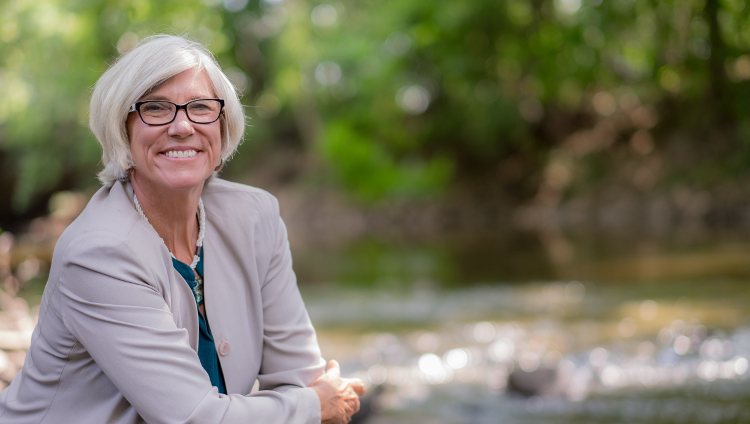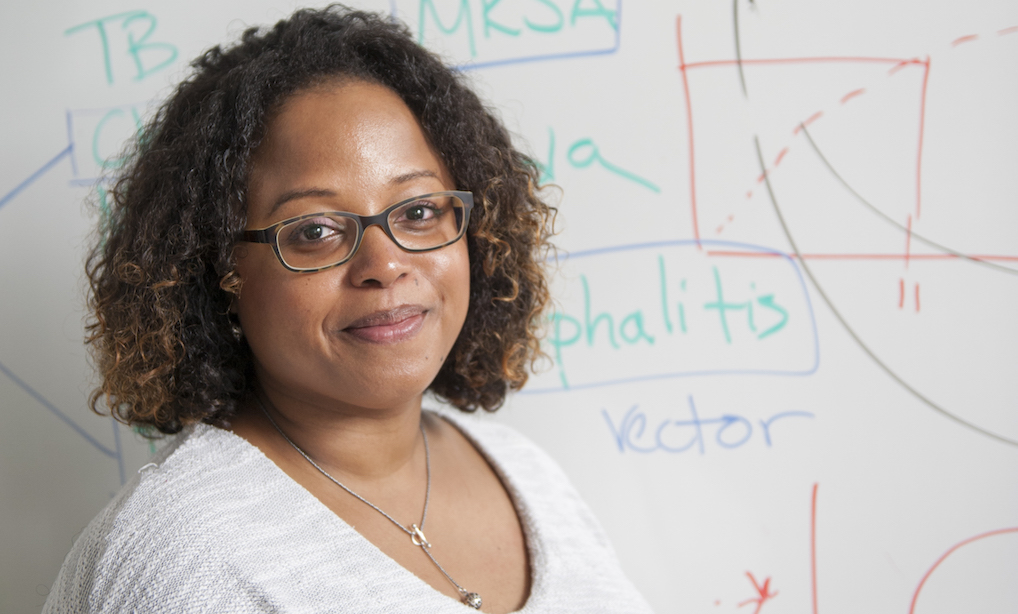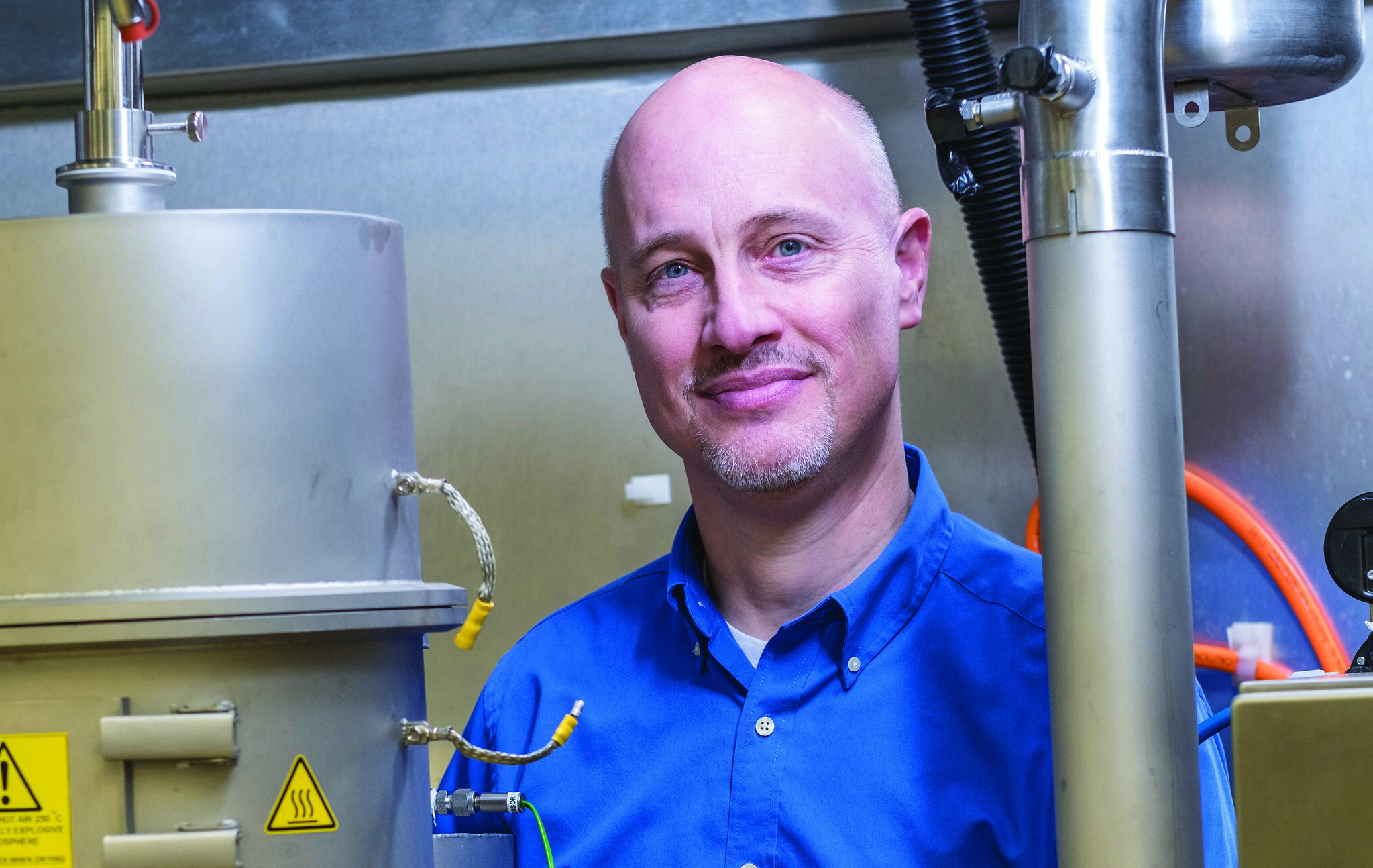AgBioResearch continues work amid COVID-19 pandemic
‘The cows still have to be milked’ – Doug Buhler, MSU AgBioResearch

Facing the challenges of the novel coronavirus starting in March 2020, the College of Agriculture and Natural Resources has remained committed to safely advancing its research efforts to respond to industry needs while also supporting agricultural stability around the state, nation and world.
“The fact of the matter is you really can’t do much research remotely,” said Doug Buhler, director of MSU AgBioResearch. “We’ve had to work hard to figure out how to protect the health and well-being of the animals at our farms and the plants in our greenhouses, while making sure folks stay safe and well. Fortunately, we’ve had good support from across campus and it’s gotten done.”
As of August, Buhler said field research is progressing at about two-thirds of normal activity and most on-campus laboratories had reopened with about a one-half capacity while adhering to social distancing, proper cleanings, wearing of personal protection equipment, one-way hallways and other mandated guidelines.
Many of the CANR events and activities pivoted to digital formats with great success, engagement and participation.
MSU Virtual Field Days
MSU’s popular research center field days were moved to an online format for 2020 in response to COVID-19. MSU Virtual Field Days drew hundreds of online attendees to learn about a variety of topics related to agriculture and natural resources.
“Although the majority of our agricultural work has been ongoing during the pandemic, we decided to offer our popular field day events online this year in an effort to keep everyone safe and to abide by the guidance of the university during these unprecedented times,” said Buhler. “The food supply chain needs this critical information now perhaps more than ever.”
Educational webinars and research updates were provided by MSU researchers and MSU Extension educators. The information provided at each virtual field day was especially relevant to producers, educators and commodity experts. Topics ranged from turfgrass to grazing and from pollination to fruit production.
MSU water research
MSU water expert Joan Rose is leading efforts to collaborate with scientists worldwide to monitor for the presence of the novel coronavirus in sewage.

Shortly after the outbreak began in early January, Rose — the Homer Nowlin Chair in Water Research at MSU and one of the world’s foremost experts on drinking water and wastewater treatment — contacted colleagues in China and neighboring Asian countries where the virus was spreading. She said it became clear, based on those conversations, that water quality and sanitation were topics of great concern.
Rose has been appointed chair of the Covid-19 Task Force for the International Water Association (IWA). The group has been tasked with learning more about the public health consequences of the novel coronavirus in the water system. Little is known about the virus in wastewater, inhibiting the ability to assess risk or understand potential environmental exposure routes.
Some of the issues being explored by the task force are monitoring wastewater as a measure of the virus in communities, inactivating the virus during wastewater treatment, assessing the risk to workers and proactively communicating with the public about water safety. As more is discovered, the group will be authoring white papers and fact sheets for governmental and public utilities, as well as hosting webinars to answer questions on best practices.
Additionally, Biosystems and Agricultural Engineering associate professor Jade Mitchell is building on Rose’s water research as part of an Environmental Protection Agency project. She’s working to better understand and predict water quality and health risks posed by declining water usage and low-flow plumbing.

Bridging science, engineering and health, Mitchell’s research has broad community health implications. Her ongoing work helps predict water quality impacts and human health risks, as well as informs policymakers of risks associated with plumbing systems.
COVID-19 mitigation
Felicia Wu, John A. Hannah Distinguished Professor in the Michigan State University (MSU) departments of Food Science and Human Nutrition, and Agricultural, Food and Resource Economics (AFRE), conducted research analyzing public reaction to COVID-19 and the impact of adherence to public health guidelines in response.
Wu built her study off the principle that humans mimic the behaviors and actions of those closest to them socially and that phenomenon can be applied to practices to prevent the spread of coronavirus.
“In the U.S., it used to be considered really taboo to wear a face mask,” Wu said. “At the beginning of the pandemic, people were still a little bit reluctant, until they began to see that everybody else was doing it. Just from taking walks around the neighborhood, you see people wearing face masks, and it's kind of a sense of relief. It's like, 'ok, it's acceptable for me to do the same.’”

Social network theory can also be applied to physical distancing, or staying 6 feet away from individuals who don’t live in your household while in public.
“If we see people keeping 6 feet away from each other while on walks or in grocery stores, we’re more likely to do it ourselves,” she said.
Wu was also a frequent choice of statewide and national media outlets for advice on mitigating the spread of novel coronavirus.
Also popular with media are AFRE researchers Aleks Schaefer, Trey Malone and David Ortega. As the agriculture economy adapted to COVID-19, these researchers were sought to share their expertise on how markets reacted to the many obstacles brought on by the virus.
Included in the response was the creation of “Closing Bell: A Conversation with MSU Agricultural Economists.” The weekly webcast features Malone and Schaefer discussing the most recent COVID-19 issues and how the agricultural economy was responding. The webcast has gathered a large audience, with hundreds of guests tuning in to listen to Schaefer and Malone chat with a number of economic experts around the country.
Schaefer and Malone are uniquely positioned to discuss the uncertainties the coronavirus global pandemic is causing for agriculture, our global food supply chain and the economy.
Pathogen resistance food
Bradley Marks, professor and chair in the Michigan State University (MSU) Department of Biosystems and Agricultural Engineering (BAE), is the project director of a five-year, $9.8 million grant from the U.S. Department of Agriculture National Institute of Food and Agriculture (USDA NIFA) that takes a holistic look at reducing threats of pathogens in low-moisture foods. NIFA has designated the project as a Center of Excellence, meaning it has high merit value and meets criteria for broad impact.

Marks, along with a team of economists, engineers, microbiologists, consumer educators and risk modelers, is working to reduce the risk of Salmonella, E. coli and Listeria from harvest to consumer.
“Just being an engineer with a better piece of equipment isn't going to solve this food safety problem. We've got to look at the entire system,” Marks said. “It's a problem that may not always be a headline, but it's a huge economic impact for these companies.”
MSU researchers Sanghyup Jeong, assistant professor in BAE; Elliot Ryser, professor in the Department of Food Science and Human Nutrition (FSHN); and Felicia Wu are part of the grant team.
‘Futures’
In July, AgBioResearch released a series of “Futures” articles highlighting the various research advancements ongoing in the area of plant health. Topics included plant health projects that have impact on human health, climate change and food security. Typically, the magazine is printed twice a year. This was the publication’s first online only edition and it surpassed expectations.
“In the first month, we had the same amount of views as we normally mail the publication to,” said Buhler.



 Print
Print Email
Email





